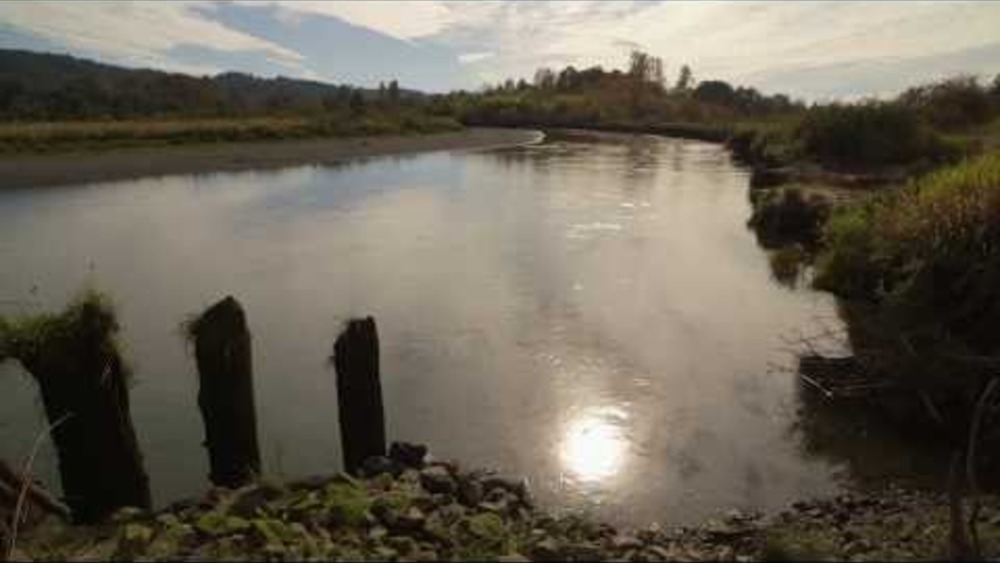“Water in the Native World,” a special issue on tribal water research was just released by the Journal of Contemporary Water Research and Education. This is the second time, Dr. Karletta Chief, the PI of the Community Engagement Core of the University of Arizona Superfund Research Center (UA SRC) has served as a guest editor to compile research highlighting important water research in tribal communities. Not only is the guest editor Indigenous but in this Special Issue nearly all of the co-authors are Indigenous and three publications (Bulltail and Walter, 2020; Conroy-Ben and Crowder, 2020, and Martin et al., 2020) are led by an Indigenous lead author.
Download full articles from the special issue.
Contact: Dr. Karletta Chief, Assistant Specialist & Professor, Environmental Physics and Hydrology
July 1, 2020
Speaker:
Andrew T. Kozich took a long and unusual path to his current position as Environmental Science Department Chair at Keweenaw Bay Ojibwa Community College (KBOCC) in northern Michigan.
In the 1990s, Andrew worked his way through his undergrad studies by supporting himself as a professional musician. It took eight years to complete a B.S. in Resource Ecology (an Earth Science program) from the University of Michigan.
After a few years away from school and a few other career experiments, he entered graduate school at Michigan Tech University at age 34. He completed a M.S. in Environmental Policy in 2009 and a graduate certificate in Sustainable Water Resources in 2010.
Around this time, Andrew discovered that there was a small Tribal college, KBOCC, 30 miles down the road. As he continued his graduate studies unsure of his direction, he enrolled as a part-time guest student to explore Native American history and culture for personal enrichment. He studied under James Loonsfoot, a widely-respected elder who has since passed away.
After two semesters as a KBOCC student, the Environmental Science Department Chair position was vacated and the Dean of Instruction asked Andrew if he was interested. Andrew’s original career vision from long ago was to work at a small college where he might make a greater and more personal impact on students. He interviewed and was hired on the spot in early 2011. His Michigan Tech advisor was initially not happy with this decision.
The decision to join KBOCC provided needed vision for his doctoral research and opened countless doors. Already wading into the interdisciplinary field of water resource management and policy, his research took on added cultural emphasis that was greatly enhanced by his experiences at KBOCC. He continued taking KBOCC courses while slowly progressing with his research. He was assisted by a GK-12 Global Watershed Fellowship and later an American Indian College Fund Mellon Fellowship. He finally completed his Ph.D. in 2016, using mixed-methods research to compare Native and non-Native perspectives on climate change and water resources in the Great Lakes area. In 2017 Andrew completed his KBOCC Associate Degree in Anishinaabe Studies.
Andrew has published 10 articles in peer-reviewed journals and contributed numerous conference presentations and panel sessions. He was recognized as KBOCC’s “Faculty Member of the Year” in 2012 and 2018. However, his greatest pride comes from his measurable accomplishments at KBOCC, including a 100% job placement rate of graduates, mentoring over 30 student internships, guiding over 20 student presentations at national conferences, engaging six student co-authors on publications, and overseeing a significant increase in his program’s enrollment since 2011. He has also developed a new KBOCC program in Sustainability. Beyond the classroom, his greatest joy is engaging under-represented students in community-based research that provides valuable outcomes for the Tribe and meaningful experiences for his students. His presentation today reflects these objectives.
All content courtesy University of Arizona Cooperative Extension


